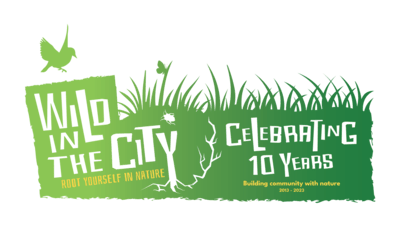“Nature belongs to no one and everyone”
Meet the woman breaking down barriers to nature for people of colour
Suzanne Worrica, a psychotherapist based in Brighton, has been a Nature Guide with Wild in the City since 2021, leading groups of people of colour into the great outdoors for the first time. Raised in rural England, Suzanne relocated to the city as an adult and found herself disconnected from nature, and herself. She explains why being in nature is home for her.
Have you always been interested in nature?
For me, being in nature is like applying a soothing balm to a wound. I grew up surrounded by heathland, which provided me with shelter when I was dealing with the everyday aggressions of growing up as one of the few Black people in a small market town. Both my parents come from countries with verdant, vibrant landscapes, which became foggy in their memories under years of living and striving in the city. Yet the echo of land ownership was alive in the plots my father and I dug over and tended wherever my family lived, and the beautiful gardens my mother presided over where I made rose water perfumes as a child. I have always been close to the natural world. I just lost my way for many years.
What obstacles have you faced in getting/being outdoors in the UK?
I am fortunate to have experienced nature as a shelter, as a place to walk, think, breathe, commune. And as a space to enjoy. Nonetheless, I am aware of the visible and invisible barriers to getting outdoors, including financial constraints, the messages around who belongs in nature and the micro-aggressions when outside. I have a sense of needing to act with ‘respectability’ when I’m outside, and not to frighten people as my unexpected presence, at times, has made people literally jump. Husbands have stepped in front of their fearful wives, interjecting their implicit bias into my enjoyment of the natural world.
My unexpected presence, at times, has made people literally jump
Can you tell me about a particularly memorable experience you’ve had in nature and why it was so special?
It’s hard to choose one! The more I reconnect with the natural world and see and sense more, the deeper these experiences impact. One gorgeous memory, which was a turning point for me, was when I lost my fear of the woods. Night was falling in Frylands woods where I was camping, and I took a walk, venturing more deeply than I’d ever gone into an unfamiliar part of the woods. I came across a fox and we both stopped and stared at each other for a stunning few seconds before she turned tail and ran, leaving me with a sense of wonder and a new familiarity with my surroundings.
What’s the biggest lesson you’ve learnt from being out in nature?
That there is nothing to fear there, that the more I know and understand the cycles of nature, the more I feel a sense of belonging to the land.
What impact has it had on you?
I can answer in terms of how I feel when there is an absence of nature in my daily life, for example, when I am in an office environment. I feel a mild melancholia, which I interpret as a longing to be outdoors. My physical health also takes a hit as my sinuses become blocked and a little painful. I live by the sea and I’m fortunate enough that I can walk along the ocean on a daily basis – my head clears, my nervous system relaxes, and the wide sky, literally and metaphorically, opens my vision.
How did you become involved with Wild in the City? Why did you decide to become a Nature Guide?
I recall an invitation to attend the WitC Festival and thinking I would love to be involved in Black-led nature work, and here I am a few years later doing it! The festival was a unique opportunity to hear from speakers and environmental actors from the U.K. and abroad I wouldn’t otherwise have known about, and to gather together as Black and brown people. It was an enriching experience that led me to train in Nature Allied Psychotherapy just as the pandemic was ending. After nearly two years offering psychotherapy online, to study in a natural setting was like breathing again after being underwater. I completed the Diploma and was offered an opportunity to train as a Nature Guide, and to reconnect with my innate knowledge of nature and learn new outdoor survival skills in the process.
Black and brown people being in nature is a political act, an act of overturning the status quo
Why should more Black people get involved in nature?
Because being in nature is free and nature belongs to no one and everyone. Because currently, and unfortunately, Black and brown people being in nature is a political act, an act of overturning the status quo, and the more we are visible, the more we will feel relaxed in nature. Because Black and brown people enjoy or would benefit from being in nature; we just don’t enjoy the reception we get when going solo or in a group. And because walking with other Black and brown people fosters a sense of belonging and being in community with each other.
Interested in exploring nature and your place within it? Sign up for our next Nature Connectors course! Visit wildinthecity.org.uk/nature-connectorsprogramme/ to find out more.





